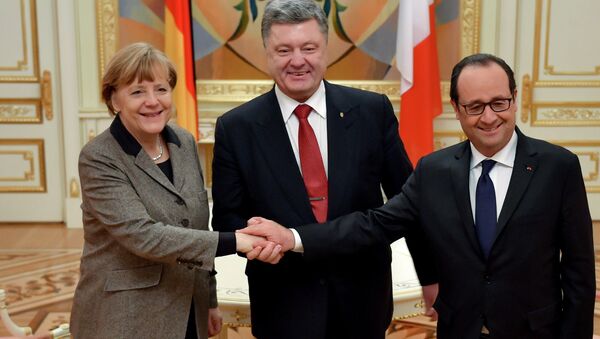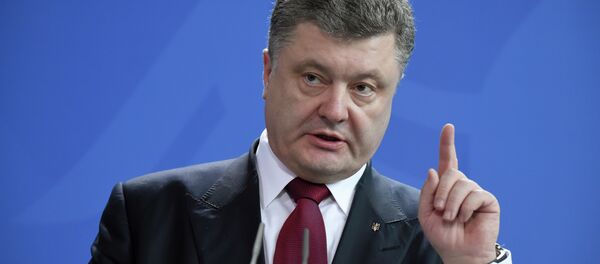On Friday, Poroshenko lifted the sanctions against six Europeans, while others, including Bertoldi, still remain on the list.
"Kiev's blacklist could serve as a fundamental crossroads for the European Union and the United States, who see themselves as ambassadors of democracy and morality," Bertoldi, a contributor to the Il Giornale daily newspaper, said.
"The fact that Ukraine does not want to have foreign journalists on its territory shows that it controls the local media and does not want to hear from anyone who prefers not to sing in chorus," Bertoldi said.
He added that the blacklist testified to "how little the Ukrainian government believes in democracy and the freedom of speech in the West."
"Here we see also double standards: when Europe and NATO support the Ukrainian government it pleases Kiev, but when a group of politicians in some countries takes a different position, the Ukrainian authorities are offended," Bertoldi stressed.
Freedom of the media in Ukraine has been repeatedly violated since the start of the military conflict between the Kiev authorities and Donbas militia in April 2014.
Several international journalists have been abducted, tortured and killed during the hostilities, including Rossiya Segodnya photojournalist Andrei Stenin.


